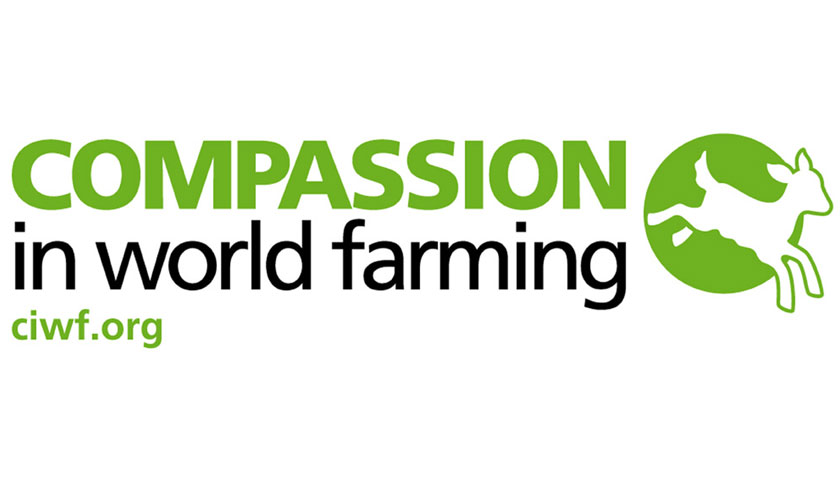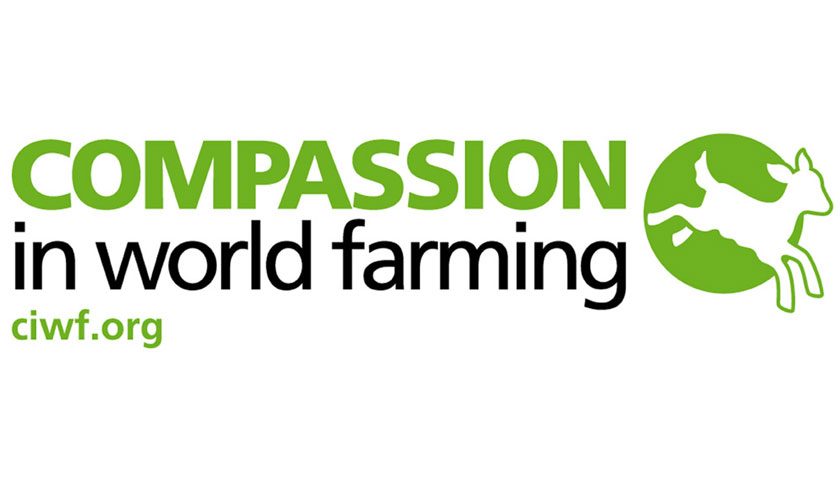More companies are making global cage-free egg commitments according to the sixth annual EggTrack report by Compassion in World Farming released on 16 November. The expansion of commitments beyond just regional policies to enable progress at a global scale is strongly encouraged by the charity, and in the past year alone more companies including Pizza Express, Yum! Brands and Bloomin’Brands have made new global cage-free commitments.
EggTrack continues to measure and encourage the transition to cage-free eggs by capturing and reporting progress against the cage-free commitments of major food businesses. The Report encourages transparency and drives business-to-business conversations that help deliver a stable and successful transition to the common goal of a 100% cage-free future.
There are 232 companies monitored in EggTrack of which 103 operate globally, 52 operate only in North America or the US, 76 operate in Europe (including the UK), and for the first time, EggTrack has a dedicated section for the Asia-Pacific region which includes 2 companies that operate there exclusively.
Of the 232 companies, 175 (75.4%) report progress against their cage-free commitments, an increase from 71% in 2021, with an average 79.1% transition to cage-free. Of the companies that reported global progress, their cage-free sourcing increased from 55.2% in 2021 to 63.1% in 2022.
In 2022, of the 58 companies with global commitments, 34 (58.6%) reported progress against these commitments, and we saw new global cage-free pledges from Bloomin’ Brands, Darden Restaurants, Focus Brands, Pizza Express, Royal Caribbean International, The Cheesecake Factory, Wyndham Hotels & Resorts, and Yum! Brands.
One company that has successfully achieved 100% cage-free production throughout its global business, and which provides this year’s Foreword for the EggTrack Report, is Danone:
“Danone has been working on animal welfare for many years, embedding it as a key pillar of its regenerative agriculture strategy. When we took our commitment to cage-free eggs and egg ingredients in 2018, we knew it wouldn’t happen overnight and that we would need to work closely with our suppliers. But we persisted and reached our target of 100% cage-free eggs and egg ingredients in 2020.” says Cees Jan Hollander, Global Farming Expertise Manager at Danone.
“Tracking and reporting our progress are important ways to hold ourselves accountable inside and outside our company, answering consumers and investors’ growing demand for transparency and improvement, via benchmarks like the Business Benchmark on Farm Animal Welfare (BBFAW). What’s exciting is that thanks to tracking from Compassion in World Farming, we can see that cage-free eggs are swiftly becoming the industry standard.”
Market data shows that the EU cage-free flock has continued to grow from 52% in 2021 to 55% in 2022. The latest EggTrack reports that of the 128 companies with European commitments (as part of a regional or global commitment), 109 companies reported progress (85%), with their supply chains now standing at an average 84.4% cage-free.
In the UK 64.6% of eggs are now cage-free and the decline in caged eggs produced in the UK (down to 35% share of production) is accompanied by a concurrent increase in free-range (up to 59% of production) and, to a lesser extent, organic production (4%). Barn production remains unchanged at 2%.
All this progress should be applauded against the backdrop of the ongoing effects of COVID-19, the war in Ukraine, the impacts of inflation and recent increases in cases of the highly pathogenic avian influenza (HPAI).
With the consistent upward demand for cage-free eggs, however, companies should be careful not to opt for systems like ‘combination’ or ‘limited access’ systems, as they limit hen movement and are not considered to be a suitable alternative to caged housing. As such, Compassion is asking companies to publish updated language in their cage-free commitments specifying that they will not allow combination or limited access systems in their supply chain.
In this year’s report, for example, 24 companies have clear statements against the use of combination systems within their supply chain. These include ALDI Nord, Barilla, Bennet, Carrefour Spain, Chef Express, Coles Group, Coop Italy, Domino’s Pizza (UK & IRE), E.Leclerc France, Eroski, Eurovo, Fattoria Roberti, GB Foods, Grupo Avícola Rujamar, Gruppo Sabbatani, Gruppo Selex, Huevos Guillén, Kroger, Marr, Meijer, Metro Group, Sammontana, Tesco and Unilever.
The charity also advises that to achieve 100% cage-free production, companies must ensure that their cage-free policies include all egg – shell, product AND ingredient eggs. This will be a focus in the 2023 EggTrack Report where the egg categories captured will include egg ingredients for the first time, recognising the huge volume of eggs used in processed foods and which impact a high number of hens.
Across the UK retail sector, the status of cage free eggs is variable. For example, Waitrose, The Coop, Sainsbury’s and M&S have been cage-free on shell eggs and egg products for many years now, while Aldi and Lidl have commitments on both shell eggs and egg products but are failing to report progress on the latter. Asda has added egg products to their cage-free commitment this year and are yet to report on their progress, while Spar and Iceland do not have cage-free commitments for egg products at all.
As the global egg industry is shifting to cage-free production and implementation deadlines are quickly approaching, it is essential that companies effectively collaborate with their suppliers to ensure their value chain is on track for fully implementing cage-free commitments, exclusive of combination and limited access systems, by the expected timelines.
Dr Tracey Jones, Global Director for Food Business at Compassion concluded: “Despite difficult economic times, companies are still forging ahead with their cage-free commitments which should be applauded. It’s fantastic to see an increase in global commitments from leading companies who are showing a reasonable transition to cage free.
“EggTrack is an important tool in ensuring this progress continues, helping to drive transition and compliance. But going forward, companies must address all egg categories in their commitments and ensure the cage-free systems they transition into are fit for purpose.
“Cage-free production is a smart investment, as increasing consumer and corporate demand will only accelerate this global trend.”

